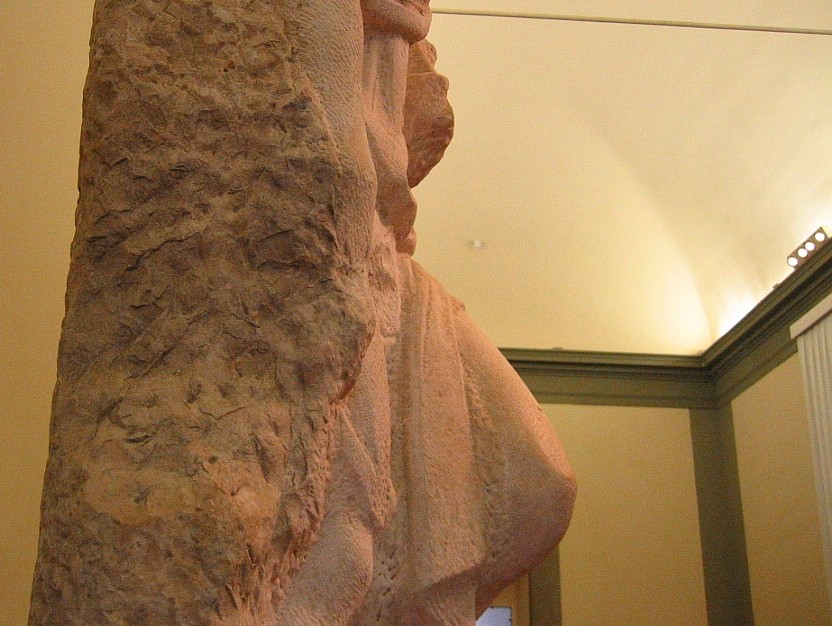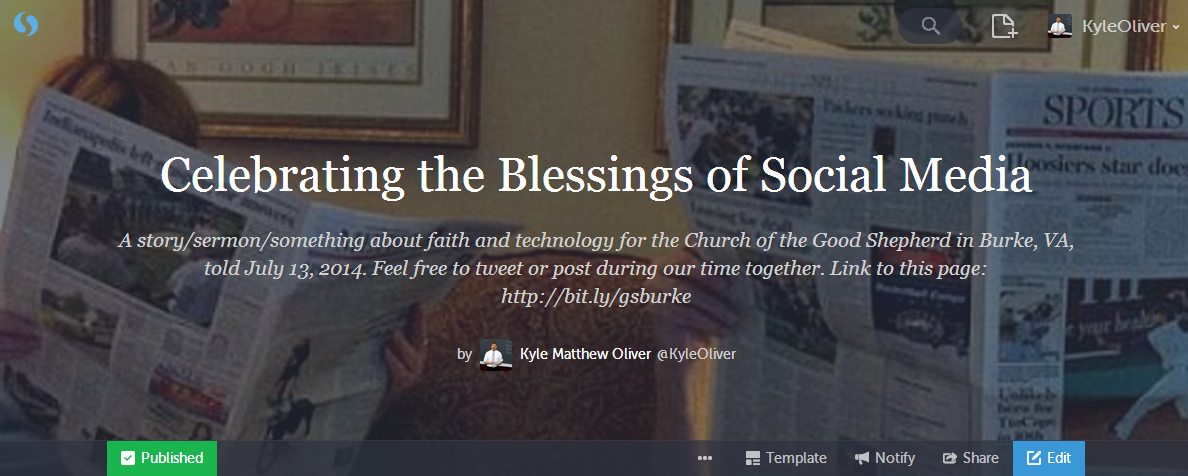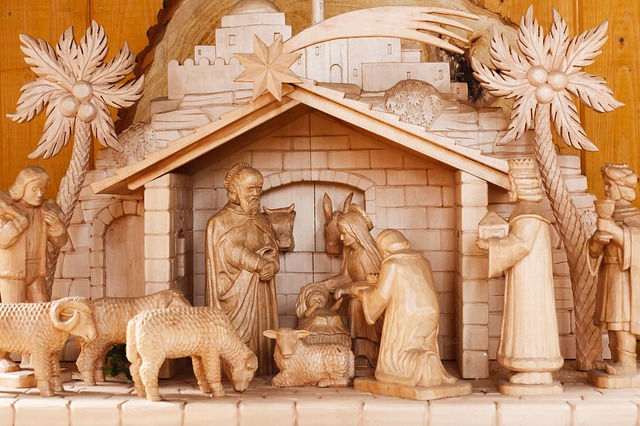(Isaiah 51:1-6; Psalm 138; Romans 12:1-8; Matthew 16:13-20)
PDF | Audio (or via Dropbox) | Text:
I want to begin by passing on a word of thanks and admiration from a recent visitor. It was sent to our music directors and acolyte coordinators but applies much more broadly. The Rev. Dr. William Bradley Roberts is a professor and the director of chapel music at Virginia Theological Seminary. He writes,
Seldom am I compelled to write after visiting a parish on Sunday morning, but I must share some impressions with you of worship last Sunday, August 17.
At a time of year when most parishes drastically cut back their liturgical offerings, worshippers at St. Paul’s were led in a manner that most parishes might consider a festival service. We belong to another parish but are regular visitors to St. Paul’s, and last Sunday we felt it had been too long and was, therefore, time for us to worship on K Street. Now I see that inclination as the movement of the Holy Spirit.
The liturgy and music were exhilarating … It was a feast. [… there were so many thrilling moments it’s hard to know where to begin. The anthems were done with elegance … Improvisations occurred at various places that many would easily have assumed were carefully constructed compositions … the people responded accordingly, singing with faith and fervor.]
… I know that parishes often hear from people who are distressed about something, so I wanted you to hear from this worshipper when everything was just about perfect … Sunday was an extraordinary experience at an ordinary time of year, and we came away blessed because of it.
Nice, huh? It’s good to take a moment to celebrate when the occasion presents itself, especially in a parish where perhaps we are sometimes too hard on ourselves. I hope this well-deserved kudos can provide for all of us such an occasion today.
If you’re looking for further cause for celebration, I suggest you check in with the work of our search committee. I believe the recently completed parish profile is a real triumph, not just for the search committee and vestry but for all of us who contributed through our feedback and through our participation in this community.
The document is honest about our many and significant challenges, insightful about our immediate and future needs, and appropriately appreciative of our distinctive strengths and gifts. I encourage you to read it carefully, or read it again, and reflect not just on how our next rector can help us respond to our challenges but how you can too.
I believe we are a church living into the vision Paul presents to us in today’s Epistle lesson:
For by the grace given to me I say to everyone among you not to think of yourself more highly than you ought to think, but to think with sober judgment, each according to the measure of faith that God has assigned. For as in one body we have many members, and not all the members have the same function, so we, who are many, are one body in Christ, and individually we are members one of another. (Romans 12:3-5)
Sober judgment and self-reflection? That’s what our discernment process is all about. One body in the Body of Christ? That’s basically the title of the parish profile. A variety of gifts given by grace and exercised in faith? Just look around you on any given Sunday, and not just the ones we get nice letters about. We are indeed discerning, for us, “what is the will of God—what is good and acceptable” and sometimes, to quote Dr. Roberts, “just about perfect.”
And yet there’s one line in this reading that ought to give us pause, give any church pause:
Do not be conformed to this world, but be transformed by the renewing of your minds (Romans 12:2a)
This is the most open-ended of Paul’s admonitions today, and I think the most challenging. On the one hand, the Spirit has called God’s people to be a community set apart. Think of all the imagery that Jesus and the prophets use: light of the world, city on a hill, lamp on a lampstand, salt of the earth, a kingdom of priests, a holy nation.
There’s something exemplary and countercultural about our witness and our gifts.
- It’s why we put on silly clothes and process through the streets on Palm Sunday.
- It’s why we get up early every weekend to serve homeless neighbors most people would rather avoid.
- It’s why Dr. Roberts was so surprised and delighted to see a full choir and a full nave in the dog days of a DC summer.
On the other hand, we live and participate in a particular culture, and are trying to reach people who may not be as inclined to critique that culture or offer an alternative vision. God certainly does not want us to create a sanctified enclave. We can’t be a self-satisfied island to ourselves that cannot or will not perceive the remarkable things the Spirit is up to beyond the walls of our churches, among people of other faiths and of no faith at all. Our resistance to conformity must not become a license to judge or to disengage.
So how do we resolve this dilemma between conformity to the world and rejection of it? I believe the answer is right there in our mission statement: Christ-like living. Jesus himself struck the balance perfectly between both participating in his culture and turning it upside-down.
- He showed up at the social gatherings of common people, and even scandalous people.
- He taught about the Reign of God using stories and imagery from common life experience.
- And as we heard last week in the story of the Canaanite woman, he listened and responded on those few occasions where someone accused him of limiting the scope of God’s message of love.
Our transforming journey, the renewing of our minds, will proceed as we continue to conform not to the world but to Christ, who was not against the world but deeply and compassionately for it. Our gifts will sharpen, and our challenges catalyze our growth, as the sometimes gentle and sometimes scouring winds of the Spirit blow upon us. They will blow away, if we let them, the detritus of the self-centeredness and listlessness and fear that are a natural part of any community. God has been with us throughout our life together and is working on us and in us still.
***
There’s a striking if imperfect image I haven’t been able to shake this week, one that came to me upon first reading our remarkable lesson from Isaiah:
Look to the rock from which you were hewn,
and to the quarry from which you were dug.
Look to Abraham your father
and to Sarah who bore you (51:1b-2a)
We Christians might add “Look to Peter, the rock of the church.”
I love this notion of we the faithful being chiseled out of the foundation stone laid by our ancestors, maybe even made of our ancestors. The stone metaphor is limited, to be sure, but it’s perfect for capturing this idea of our slow conforming not to some external ideal but to the image of Christ that is already within us.
This is an idea the artist Michelangelo understood particularly well. In fact, if you’ve been fortunate enough to see his original David at the Accademia in Florence, then you’ve also seen four powerful icons of this spiritual experience. (If you haven’t seen them, I’ve put some photos in the atrium.) Listen to how the museum’s curators describe the four figures who line the hallway leading toward David:
All the unfinished statues at the Accademia reveal Michelangelo’s approach and concept of carving. [He] believed the sculptor was a tool of God, not creating but simply revealing the powerful figures already contained in the marble. Michelangelo’s task was only to chip away the excess, to reveal … Unlike most sculptors, who prepared a plaster cast model and then marked up their block of marble to know where to chip, Michelangelo mostly worked free hand … These figures emerged from the marble “as though surfacing from a pool of water.” (More here, emphasis added.)
These are the non-finito, the unfinished, the prisoners—torsos wriggling free, heads and limbs still trapped in stone. Maybe they capture the way God looks at us some of the time, figures powerful and poised, longing to be fully free. Set free, more and more, from the impediments to our true nature, from the shackles of stone that still bind and paralyze us.
My sisters and brothers, we don’t need to conform to anyone else’s model of success or beauty or even holiness. We are sacred masterpieces in progress, participating, by grace, in the terrifying and liberating process of divine transformation.
Some days, we need the sharpness of God’s chisel and the persistent tapping of a mallet that will do its work better if we can manage not to flinch.
And occasionally, we catch a vision, usually in each other, of the divine perfection that will one day break the surface into radiant, graceful resurrection life. On those days, things are “just about perfect” and we go forth rejoicing in the power of the Spirit.
Image credit: “Michaelangelo’s unfinished pieces Florence Firenze Accademia” by Scott MacLeod Liddle via Flickr (CC BY-NC-ND 2.0)









